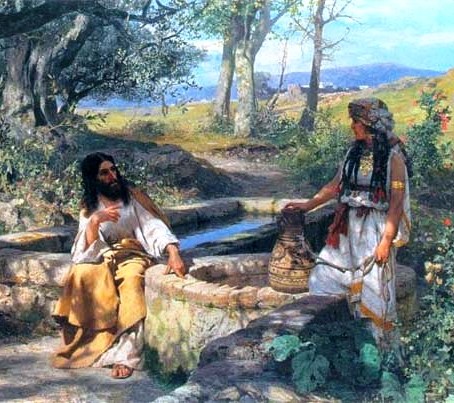
Jesus and the Woman of Samaria,
painting by Henryk Siemiradzki
Today’s Easter song from Sing Praise is “We shall draw water joyfully”. It’s one of those set for cantor and congregation, with the cantor’s line adapted slightly for each of the three acclamations.
These three cantor’s acclamations are based on Isaiah chapter 12, and express firstly confidence in God’s salvation, secondly the thanks due to him for his ‘mighty deeds’ and thirdly a psalm of praise to the Lord as we make his works known. Thanks and praise to God in response to his saving acts are a regular theme in the Hebrew scriptures and in Christian worship.
The chorus is to a tune that fits the words – fast, flowing and joyful as we sing “We shall draw water joyfully, singing joyfully, from the wellspring of salvation”. he chorus could just as easily be said to be based on Jesus’ own sayings about himself offering ‘living water’. The ‘water’ here is metaphorical and represents both something that meets the needs of our physical life (which of course is utterly dependent on H2O) and also a spiritual refreshment contrasted with the insipid and sometimes dangerous forms of spiritual sustenance that this world offers us.